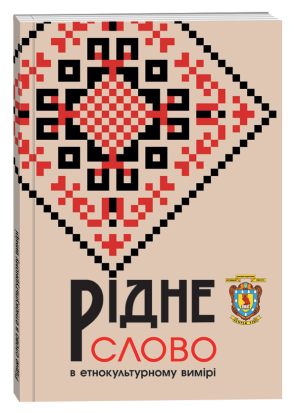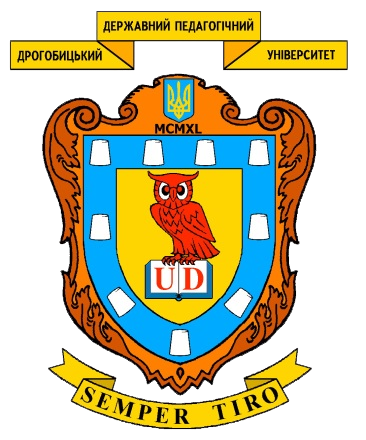FORMATION OF LEXICO-WORD-FORMING TYPES OF NULSUFFIXAL DERIVATIVES IN THE HISTORY OF THE UKRAINIAN LANGUAGE (NAMES OF LIVING NATURE)
DOI:
https://doi.org/10.24919/2411-4758.2021.216002Keywords:
history of null suffi x derivation; feminine, masculine and neuter nouns; nouns of living nature; deverbatives; deadjectives; lexical-word-forming types.Abstract
The article describes the formation of lexical-word-forming types of null suffi x derivatives to denote the names of living nature in the Ukrainian language of the XI – early XXI centuries. Derivatives that described are the deverbatives and deadjectives of masculine, feminine, rarely neutral gender, which name the names of persons, animals, plants. Only those nouns that have preserved structural and semantic correspondence with the creative bases at the time of their fi xation in the texts of written memoranda of the Ukrainian language are involved in the analysis of linguistic facts. In the group of deverbatives of the masculine gender in the most ancient monuments many names of persons-performers of action by permanent or temporary occupation or by profession are documented: пророкъ ‘preacher’, посълъ, тълкъ ‘translator, interpreter’, сторожъ, отрокъ, вож, наставъ ‘mentor, teacher’, приставъ, ‘bailiff, a person intended to protect or accompany someone’, etc. No innovations with this semantics have been found in the written monuments of these centuries, they are recorded later mostly in dialects: виж ‘witness’ ворож ‘fortune teller’, бай, ‘storyteller’. Feminine names are recorded infrequently, because such formations with -a have long acquired the meaning of the common gender. Among the names of persons with a general word-forming meaning ‘carrier of a procedural sign’, meaning external or internal signs of a person (behavior, views, social status, etc.), derivatives have long being documented: лъжь (ложь) (lies) ‘deceiver’, спасъ ‘savior’; заступъ ‘defender’; изворогъ ‘unfortunate’, etc. Feminine nouns are documented much later: дура, розпакла, кудра ‘kucheryva zhyna’ (curly hair woman), поволока ‘prostitute’, etc. This lexical-word-forming type of nouns is gradually increasing in number. In the surveyed written memos of the XIV-XV centuries, there are few innovations, they are recorded in the monuments of these centuries: повод ‘plaintiff in court’, найда, пεрεхрыст, шкандыба, розбій ‘robber’, розвідь ‘prostitute’ and many others. In the monuments of different times we fi nd the names of the subjects of action as a collective concept: народъ, полонъ ‘prisoners; збридъ, сторожа, глота ‘crowd’ and some others. The researched monuments also record the attributive names of animals ((скокъ,’horse’, кокотъ ‘rooster’, подлиз ‘snake’, туркот ‘pigeon’, підпалок “quail”, квак ‘waterfowl species’, окрута ‘larva’, дойда ‘hunting dog’, etc). From the XI century, the names of plants are documented: сад, плав ‘cork tree’, розрив ‘name of miraculous grass’, приворот, запах ‘white mushroom’, шелест, підвоя, ‘black nightshade’, остуда ‘tansy ordinary’, etc. The article also describes the history of adjective nouns of living nature and nouns of the common gender. Selected linguistic facts give grounds to assert that the zero-suffi xal creation of names of living nature from ancient times to the present day is quite common, which has had a signifi cant impact on the formation of the entire derivation system of the Ukrainian noun. The vast majority of names of persons belong to stylistically neutral vocabulary, although in the vernacular there are more and more structures with a negative evaluation value, as well as in the names of animals and plants.
References
Віняр, Г. М. (1992). Усічення як спосіб оформлення новотворів у сучасному мовленні. Сучасні аспекти дослідження граматики української мови і лінгводидактичні основи викладання шкільного курсу : [тези доповідей Всеукраїнської науково-практичної конференції]. Полтава, 73 – 74.
Лопатин, В. В. (1966). Нулевая аффиксация в системе русского словообразования. Вопросы языкознания, №1, 76 – 87. Москаленко, Л. А. (1990). Ботанічні паралелі. Культура слова. Респ. міжвідомчий зб. Вип. 39. Київ: Наукова думка, 70 – 74.
Нікітіна, Ф. О. (1983). Деякі спільні риси слов’янського словотвору. Мовознавство, №2, 58 – 65.
Николаев, Г. А. (1987). Русское историческое словообразование. Казань: Изд-во Казанского ун-та.
Хабургаев, Г. А. (1974). Старославянский язык. Москва: Просвещение.
Худаш, М. Л. (1980). До питання класифікації українських прізвищевих назв ХІV–ХVІІІ ст. З історії української лексикології. Київ: Наукова думка, 96 – 160.
Sławski, F. (1974). Zarys słowotwórstwa plasłowiańskieqo. Słownik prasłowiański. Wrocław – Warszawa – Kraków – Gdańsk. Tom 1–3.







